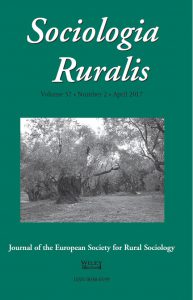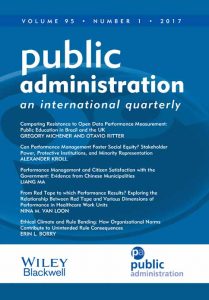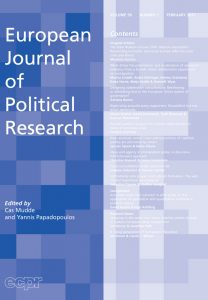The Morass of Corruption
When Indian anti-corruption activist Anna Hazare went on an indefinite hunger strike last April in Delhi, his main demand was the passage of legislation (the Jan Lokpal bill) creating an independent body to address public corruption. The hunger strike lasted only four days, as the Indian government agreed to re-introduce the bill in Parliament. (The bill has yet to be passed.)
 Hazare is the most public face of an active social movement regarding government corruption in India that has included conferences, investigations and judicial action, formal complaints, and protests. Many middle class Indians, who are often considered politically apathetic (I don’t know whether or not this actually the case), have participated in the protests; their participation is seen as representing serious public will behind anti-corruption measures. (The organization behind many of the events over the last couple of years, India Against Corruption, has U.S. branches in many states, including New Jersey and New York.)
Hazare is the most public face of an active social movement regarding government corruption in India that has included conferences, investigations and judicial action, formal complaints, and protests. Many middle class Indians, who are often considered politically apathetic (I don’t know whether or not this actually the case), have participated in the protests; their participation is seen as representing serious public will behind anti-corruption measures. (The organization behind many of the events over the last couple of years, India Against Corruption, has U.S. branches in many states, including New Jersey and New York.)
But, despite the ostensibly pro-social goal of reducing and eventually eliminating corruption, there is skepticism regarding both the bill and the movement around it. Novelist and activist Arundhati Roy has argued that because the anti-corruption movement is funded by the World Bank and private foundations (e.g. the Ford Foundation) presumably in the interest of promoting international commerce, the motivations behind the movement are suspect. (Hazare has also received money from right-wing Hindu nationalist groups.) Additionally, she argues, the bill creates a “panel oligarchy” of ten non-democratically chosen elites. Others have questioned the exact nature of the body created by the legislation, to whom it is accountable, the extent of its judicial powers and its relationship with the courts, and whether it is extra-constitutional.
Both the public demonstrations in support of anti-corruption measures and the criticism of the Jan Lokpal bill illustrate just how serious, and how slippery, a problem corruption is. It is slippery on many fronts: hard to define, hard to measure, hard to change.
Take the recent example of ticket fixing in the New York Police Department. Police officers routinely changed the parking tickets of their friends and family members so that they did not have to pay the fines. In the aftermath of the charges, several former police officers have discussed how widespread, common, and accepted this practice was for several decades. They discussed how their superior officers demanded that they fix tickets for individuals from powerful constituencies, or the City Council staff members. Not only were police officers not charged for doing this, but they were occasionally punished if they did not participate. Of course, what the officers were doing was explicitly illegal; some might see their actions as violating moral codes of conduct, while others might argue that it was a simple perk of the job to which they were entitled. (One might debate why these officers are being prosecuted for ticket fixing at this point in time, given that ticket fixing was a common practice for so long; perhaps because so many officers were involved and the evidence was particularly strong, perhaps because some officers were involved in other criminal activities (the initial investigation was launched in response to a report that an officer was protecting a drug dealer), or perhaps because the revenue source provided by parking tickets is now more important to the city than previously because of the recession.)
The ambiguity around the example of ticket fixing (if indeed you see any ambiguity) illustrates sociologist Mark Granovetter’s argument in his paper, “The Social Construction of Corruption,” that the local meanings and norms attached to transactions are very important in understanding and defining corruption. A good deal of social scientific writing on corruption focuses on how individual incentives make corruption more or less likely, Granovetter notes. In these accounts, the creation of such incentives and the social and cultural apparatus supporting such incentives is often neglected. Plenty of types of transactions can be codified as illegal, but if the individuals involved in the transactions see them as legitimate, as part of the rights and rewards of an organizational position or role, then they will be very difficult to change.
For example, few people would consider bringing sweets and other gifts to employees of an archive in Egypt in order to facilitate access to documents to be bribery. Instead, they understand these behaviors as part of the local context in which gifts to officials are basic norms. Local context, and individuals’ perceptions of the prevalence and social acceptability of transactions, are essential to both understanding what is locally considered corruption, what effect certain forms of corruption may have, and how to change corrupt practices. We call transactions we consider illegitimate corruption; but determinations of legitimacy and illegitimacy depend on a good deal more than general moral standards. This is not to argue for extreme relativism regarding corruption, but to point out that there is a lot of ambiguity in practice in the transactions that take place between officials and non-officials. (See Granovetter’s paper for a number of great examples and a nuanced discussion of how the relationship between transaction partners (the status differences between the individuals involved) and the social context of transactions (market vs. network-based), in addition to different standards for embezzlement and bribery, contribute to the sense of transactions as legitimate or illegitimate.)
Each year, Transparency International puts together a “Corruption Perceptions Index,” a country-level measure of perceptions of the “misuse of public power for private benefit” using a variety of surveys of the opinions of individuals involved in business or performance assessments from analysts. In 2010, India received a score of 3.3 on a scale of 10, similar to China, Greece, and Peru (all with scores of 3.5), above countries like Iraq (1.5), Sudan (1.6), Russian (2.1) and Paraguay (2.2), and below countries like Turkey (4.4), Malaysia (4.4), Poland (5.3), and South Korea (5.4). But the measure is subject to a good deal of criticism for a lack of standardization, incomplete data collection across countries, and changing methodology between years which makes it hard to compare across years. Two critiques are more fundamentally damaging, however. One argues that by virtue of whose opinions and analyses are included in the index, the perceptions index captures mainly the perceptions of (often Western European and American) business elites. Not only might these individuals use particular definitions of corruption, but presumably they are focused on corruption in areas related to conducting business; they are likely unaware of corruption in other areas of life. Another critique points out that there is evidence that perceptions of corruption and the actual experience of corruption are very different—this measure does not take into account the impact of corruption on everyday lives and without that, it is difficult to understand exactly what consequences corruption has. The experience of corruption of the type where telephone company workers demanding additional payment for installing a telephone line might be very different, and have different political consequences, than governors offering senate seats for a fee, to take a not-so-hypothetical example, or when local officials require international corporations to use a particular local construction company.
In addition to these problems of definition and measurement, there the additional issue of the political use of corruption charges. As historian William Gould reminds us, charges of corruption have been utilized strategically for political purposes in India, in particular during periods of rapid political transition as during the first General Election of 1951-52. Corruption charges have been wielded in the service of questioning the role of government and current leaders. (Gould also has an interesting discussion of the legacy of the British colonial bureaucracy in shaping corrupt transactions in India. Gould writes, “conditions of colonial rule by a western power in India largely exacerbated certain forms of corruption, by basing power on particular kinds of authoritarian administrative structures. These structures allowed a whole range of public servants to effectively allow corrupt transactions to continue, since government was not accountable.”)
These issues drastically complicate understanding corruption as people experience it, and tackling those transactions between officials and citizens that are most harmful to individuals’ lives.
![]() For more corruption-related readings, see:
For more corruption-related readings, see:
“Globalization and Corruption.” WARNER, CAROLYN. The Blackwell Companion to Globalization. Ritzer, George (ed). Blackwell Publishing, 2007 OR Corrupt Exchanges: Empirical Themes in the Politics and Political Economy of Corruption. Della Porta, D. and Rose-Ackerman, S. (eds), 2002.
(Photo by Pushkar V)





‘PRODUCTION OF SPACE’. As you know, most of the people of all communities (Bengali/Marathi) in this sub-continent are influenced by ‘Culture of Poverty’ (Oscar Lewis), irrespective of class, dwells in pavement or apartment. Here material poverty is a less important issue. If we seriously desire for a corruption-free society with decent Politics, has to place genuine commitment in our own mindset. We are not at all ashamed of the deep-rooted corruption at heart, decaying quality of life, bad Politics, poor work place, weak mother language, non-stop erosion/consumption of common Social Space. We use to become parents only by self-procreation (animal instinct supported by cheap consumerism) deliberately deprive the children’s fundamental rights of a caring society, fearless & dignified living. Never, ever consider alternative, positive values, passionate parenthood – stop giving birth to any child till the society improves fundamentally, co-parenting children those are born within extreme poverty/ignorance, instead. If a freedom is desired from vicious cycle of poverty, nasty pollution need to deviate ourselves a little from the prototype lifestyle, start a movement of ‘Production of Space’(Henri Lefebvre), good & competent Politics would certainly come up. Howrah, India.